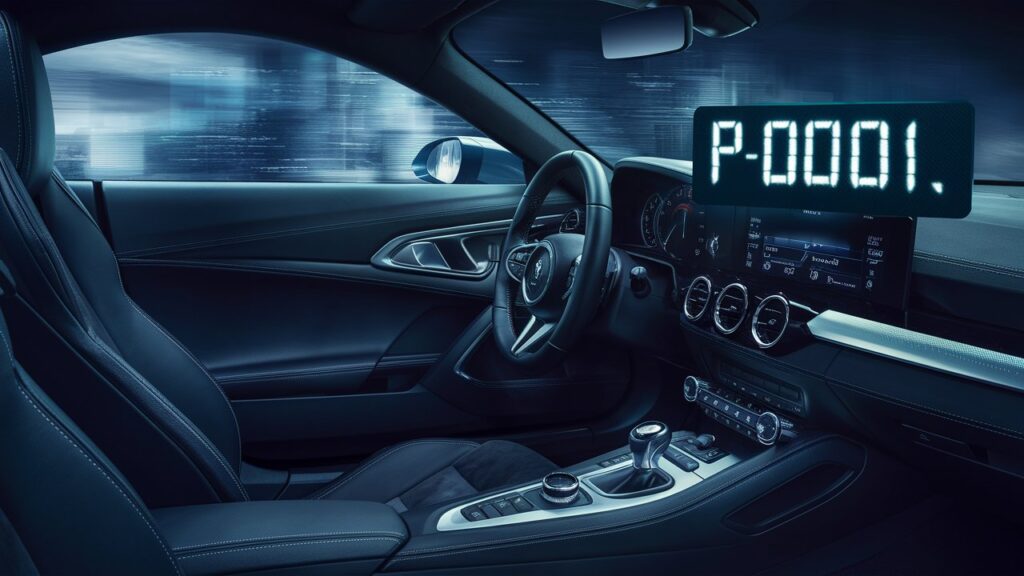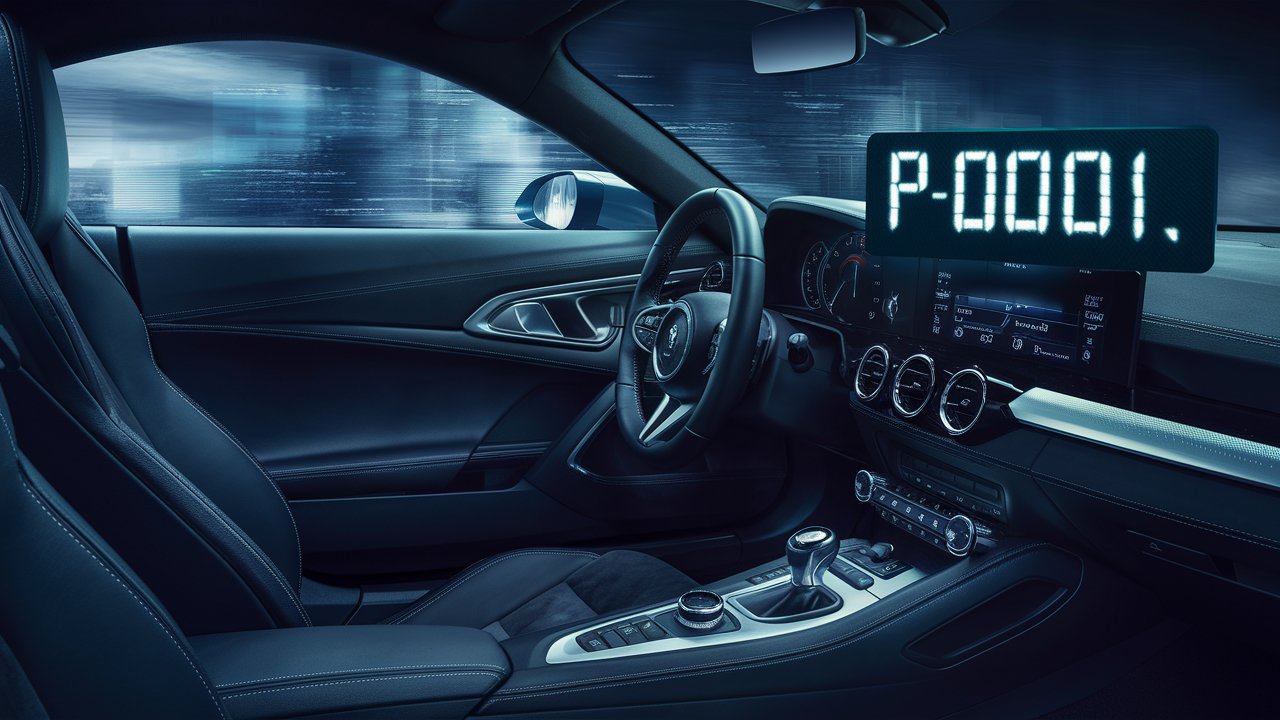Vehicle Fault Code P0001: Comprehensive Guide to Diagnosis and Repair
Vehicle fault codes are essential tools for diagnosing problems within your vehicle’s engine or related systems. One such code is P0001, which highlights a specific issue that needs immediate attention. This guide will explain what fault code P0001 signifies, how to effectively diagnose and repair it, and best practices for ensuring your vehicle runs smoothly.
What Are Vehicle Fault Codes?
Vehicle fault codes, also known as diagnostic trouble codes (DTCs), are standardized codes generated by the onboard diagnostic system (OBD-II) when it detects a problem. These codes provide specific information about the nature and location of a malfunction, making it easier for mechanics and vehicle owners to diagnose and fix issues.
The Significance of Fault Code P0001
The P0001 fault code pertains to the fuel volume regulator control circuit/open. This code indicates that there is an issue with the control circuit of the fuel volume regulator, which can affect fuel flow regulation within the engine.
Symptoms of P0001 Fault Code
Identifying the symptoms associated with the P0001 fault code is the first step in addressing the issue. Common symptoms include:
- Engine misfires or difficulty starting
- Decreased fuel efficiency
- Check engine light illuminated on the dashboard
- Unusual noises from the engine compartment
- Loss of power or hesitation during acceleration
Potential Causes of P0001
Several factors can trigger the P0001 fault code, including:
- Damaged or faulty fuel volume regulator
- Wiring issues or open circuits within the control circuit
- Corrosion or loose connections in the electrical components
- Faulty engine control unit (ECU)
Diagnosing the P0001 Fault Code
Effective diagnosis of the P0001 fault code requires a systematic approach. Here are the steps to follow:
Step 1: Use an OBD-II Scanner
The first step in diagnosing any fault code is to use an OBD-II scanner. This device plugs into your vehicle’s diagnostic port and reads the stored fault codes. When P0001 is identified, the scanner will provide a detailed description of the problem.
Step 2: Inspect the Fuel Volume Regulator
Visually inspect the fuel volume regulator for any signs of damage or wear. Check the connections and wiring leading to the regulator to ensure they are secure and free from corrosion.
Step 3: Test the Circuit
Using a multimeter, test the continuity of the control circuit. This will help identify any open circuits or wiring issues that could be causing the fault code.
Step 4: Check the ECU
If no issues are found with the fuel volume regulator or wiring, the problem may lie within the engine control unit. Testing the ECU for faults requires specialized equipment and knowledge, so it is often best left to a professional mechanic.
Repairing the P0001 Fault Code
Once the source of the P0001 fault code has been identified, the next step is to carry out the necessary repairs. Here’s how to proceed:
Repairing Wiring and Connections
If the diagnosis reveals wiring issues, repair or replace the damaged wires and connectors. Ensure all connections are secure and free from corrosion.
Replacing the Fuel Volume Regulator
If the fuel volume regulator is faulty, it will need to be replaced. This involves removing the old regulator and installing a new one, ensuring all connections are properly reattached.
Addressing ECU Issues
If the ECU is found to be the cause, it may need to be reprogrammed or replaced. This is a complex process that should be performed by a professional with the appropriate tools and expertise.
Preventative Measures and Best Practices
To prevent the recurrence of the P0001 fault code and maintain your vehicle’s performance, follow these best practices:
Regular Maintenance
Perform regular maintenance checks on your vehicle, including inspecting the fuel system and electrical components. This helps identify potential issues before they become serious problems.
Use Quality Fuel
Using high-quality fuel can prevent contaminants from entering the fuel system and causing blockages or damage to components such as the fuel volume regulator.
Monitor Vehicle Performance
Pay attention to any changes in your vehicle’s performance. If you notice symptoms such as decreased fuel efficiency or engine misfires, address them promptly to prevent further damage.
Keep the Electrical System in Good Condition
Regularly inspect and maintain your vehicle’s electrical system. Ensure all wiring and connections are secure and free from corrosion, as electrical issues are a common cause of fault codes like P0001.
The Importance of Professional Assistance
While some vehicle repairs can be performed by knowledgeable DIY enthusiasts, diagnosing and repairing fault codes often requires professional assistance. Mechanics have the tools and expertise needed to accurately diagnose the problem and carry out repairs safely and effectively.
When to Seek Professional Help
If you are unable to diagnose or repair the P0001 fault code on your own, it is advisable to seek help from a qualified mechanic. Additionally, if the issue persists after carrying out repairs, a professional can provide further insight and solutions.
Conclusion
Vehicle fault codes like P0001 are important indicators of issues within your vehicle’s systems. By understanding what these codes signify, how to diagnose them, and the steps to repair them, you can ensure your vehicle remains in optimal condition. Regular maintenance, using quality fuel, and seeking professional assistance when needed are key to preventing and addressing fault codes effectively.
FAQs
What does the P0001 fault code mean?
The P0001 fault code indicates an issue with the fuel volume regulator control circuit, affecting fuel flow regulation in the engine.
What are the symptoms of the P0001 fault code?
Common symptoms include engine misfires, decreased fuel efficiency, check engine light illumination, unusual engine noises, and loss of power.
How can I diagnose the P0001 fault code?
Diagnose the P0001 fault code using an OBD-II scanner, inspecting the fuel volume regulator, testing the control circuit, and checking the ECU for faults.
Can I repair the P0001 fault code myself?
While some repairs, like fixing wiring issues, can be done by DIY enthusiasts, more complex issues, such as ECU faults, require professional assistance.
How can I prevent the P0001 fault code from recurring?
Regular maintenance, using quality fuel, monitoring vehicle performance, and keeping the electrical system in good condition are effective preventive measures.
When should I seek professional help for the P0001 fault code?
Seek professional help if you are unable to diagnose or repair the fault code yourself or if the issue persists after repairs.
By following this comprehensive guide, you can effectively address the P0001 fault code and ensure your vehicle remains in optimal condition. Regular maintenance and prompt attention to any issues will keep your vehicle running smoothly and efficiently.

